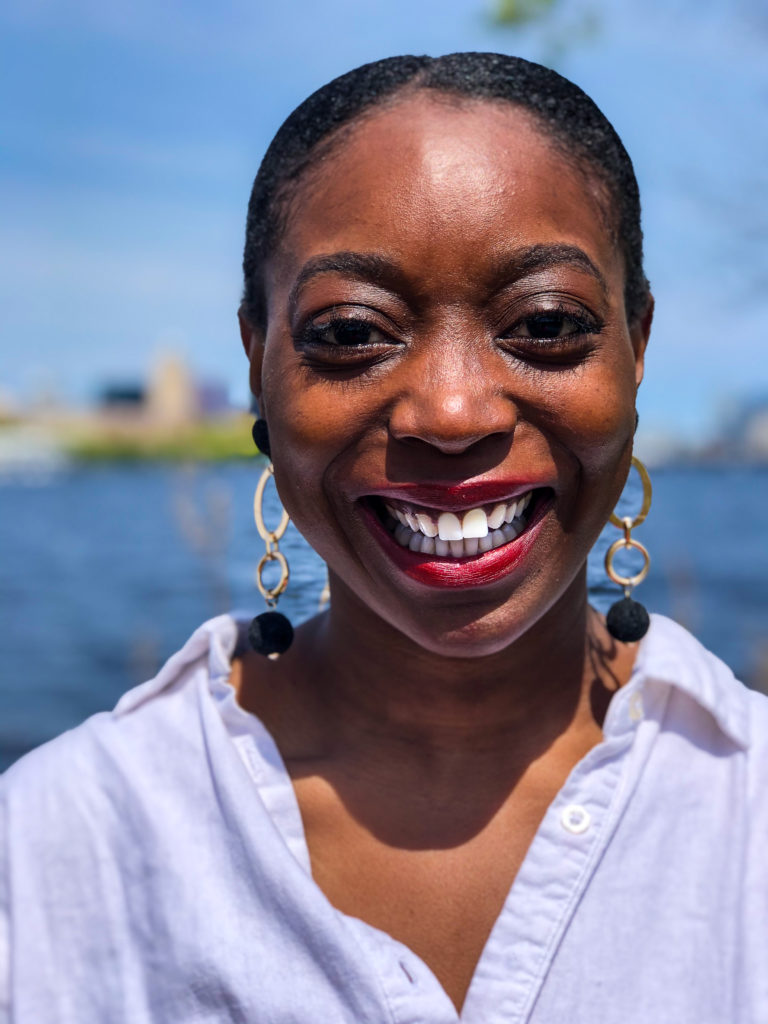Dr. Chelsea Richard is an applied epidemiologist at the intersection of early childhood, education, and public health. As the inaugural Director of Research and Strategy at South Carolina First Steps, Dr. Richard’s job is to get data into the hands of those who need it. Through collaborative research, evaluation, strategic planning, and data infrastructure, and capacity building, she leads meaning-making and storytelling that gives people the tools to understand and address the needs of the Palmetto State’s youngest citizens, their caregivers, and communities. Prior to First Steps, Chelsea worked at the South Carolina Department of Health and Environmental Control as the coordinator and data analyst for three population-level health surveys, interned at the National Institutes of Health (NIH) Clinical Center, and was a data manager for a research study at Brigham and Women’s Hospital. She has a Ph.D. and MSPH in Epidemiology from the University of South Carolina and a BS in Biology from the University of Massachusetts Boston. Part of her dissertation research won an award from the University of South Carolina’s MCH Catalyst Program in 2021. She is married to Drew Richard, a commercial appraiser, and originally from Norfolk, MA.

My Teachers
I grew up with inquisitive role models: from my grandparents, who passed the time reading books in other languages and tracking down the genealogy of our family, to my parents, who ate books for breakfast and applied geometry to build beautiful furniture. My younger sister, Ally, was my first teammate, and our grandparents and parents were our first teachers and coaches.
I was a competitive cheerleader from my adolescence into college. At its heart, cheerleading is a juxtaposition of showcasing individual skill and of those skills coming together to dance synchronously and to casually throw people in the air. Through cheerleading, I learned that being a good teammate means setting your ego aside and putting your best foot forward at all times. Knowing how to be a good teammate set me up for success when it was my time to be the leader; however, it was not without its stumbling blocks.
Learning about Leadership
My first leadership experience was as captain of my high school’s varsity cheerleading team. I was good, not great, at this. I struggled to inspire and motivate the team and to rise above gossip and drama. My second attempt at dipping my toe into the leadership pool was as a nineteen-year-old when I became a key holder at a retail store. As soon as I had that key in my hand, my demeanor changed, and I began expecting respect without earning it. This totally backfired. From these experiences, I learned that earning respect, building trust, and motivating your team are key pieces to good leadership.
During my master’s and doctoral programs at the University of South Carolina (UofSC), I dove proactively into shaping my leadership skills. I served as a teaching assistant, guest lecturer, and adjunct instructor in laboratories, lecture halls, and online classrooms for undergraduate and graduate courses. In those rooms, I learned the hard way that I am not good at winging it. I will never forget the day that I tried to wing a discussion about the sensitivity and specificity of screening tests and confused an entire Introduction to Epidemiology class of undergraduates. From that experience, I learned the power of being transparent and open when I do not know the answer. Currently, I am working to improve these skills via the 18-month South Carolina Certified Public Manager Program, which seeks to develop the next generation of government leaders through reflective and applied experiences related to management and ethics.
Being Open to Leadership
Another component of being an exemplary leader is to be led by others and learn along the way. During my career, I have had the pleasure of being mentored by several amazing scholars and professionals. Some of these mentors I sought out; others were given by nature of my position. The first, Dr. Simon Body, the Principal Investigator of the study I worked on at Brigham and Women’s, is the reason I pursued a graduate degree in epidemiology and taught me that relationships are the key to successful science. Then there was Dr. Ann Berger, my preceptor at the National Institutes of Health, who taught me the value of interdisciplinary collaborations. Next was Dr. Harley Davis, the Principal Investigator of the surveys I worked on at the South Carolina Department of Health and Environmental Control, who taught me the power of taking initiative and of critical, constructive feedback. At UofSC, Dr. Linda Hazlett, the Graduate Director of Epidemiology, taught me the value of compassion and advocacy, and Dr. Suzanne McDermott, my dissertation advisor, taught me the merit of asking “Why?” and extending grace when necessary. Georgia Mjartan, the Executive Director of First Steps, shows me the value of listening, empowering, and celebrating every day.
Lessons Learned
Throughout my journey, I have been able to apply these lessons to the development of others. I have had the privilege of mentoring several interns (one of which worked remotely from a refugee camp in Africa), graduate assistants, and practicum students. Through active listening and ongoing, bi-directional feedback, I have probably learned more from them than they ever have from me! I am currently mentoring two early career, master’s level professionals through the American Public Health Association (APHA) Maternal and Child Health Mentorship Program, which is just getting off the ground now. In our introductory conversation, I made sure to set boundaries (I do not work after 5 PM during the week and never on the weekends) and define expectations. This will set us up for a successful mentor-mentee relationship.
For those, future or current MCH leaders looking to develop this competency, here is my advice:
- Ask questions early and often
- Find leaders you admire and engage with them (Twitter can be a low-stress way to do this)
- Have an online presence that showcases your work and is kept up to date (LinkedIn and Twitter are great, free options)
- Be a good mentee (be open to an iterative learning process)
- Be honest with yourself when a relationship with a mentor is not going well
- Have more than one mentor at a time
- Explore ways to serve as a mentor or practice being a leader
- Practice setting boundaries, i.e., saying no, and defining expectations, e.g., deciding the author order before starting a manuscript or abstract with collaborators
- Set aside time regularly for self-reflection (try a “life check-up,” like psychologist Dr. Adam Grant talks about in this episode of NPR’s How I Built This)
- Take risks and do things that are scary and stretch you
- If you are the smartest person in the room, you are in the wrong room
- Comparison is the thief of joy
- Science is a team sport


